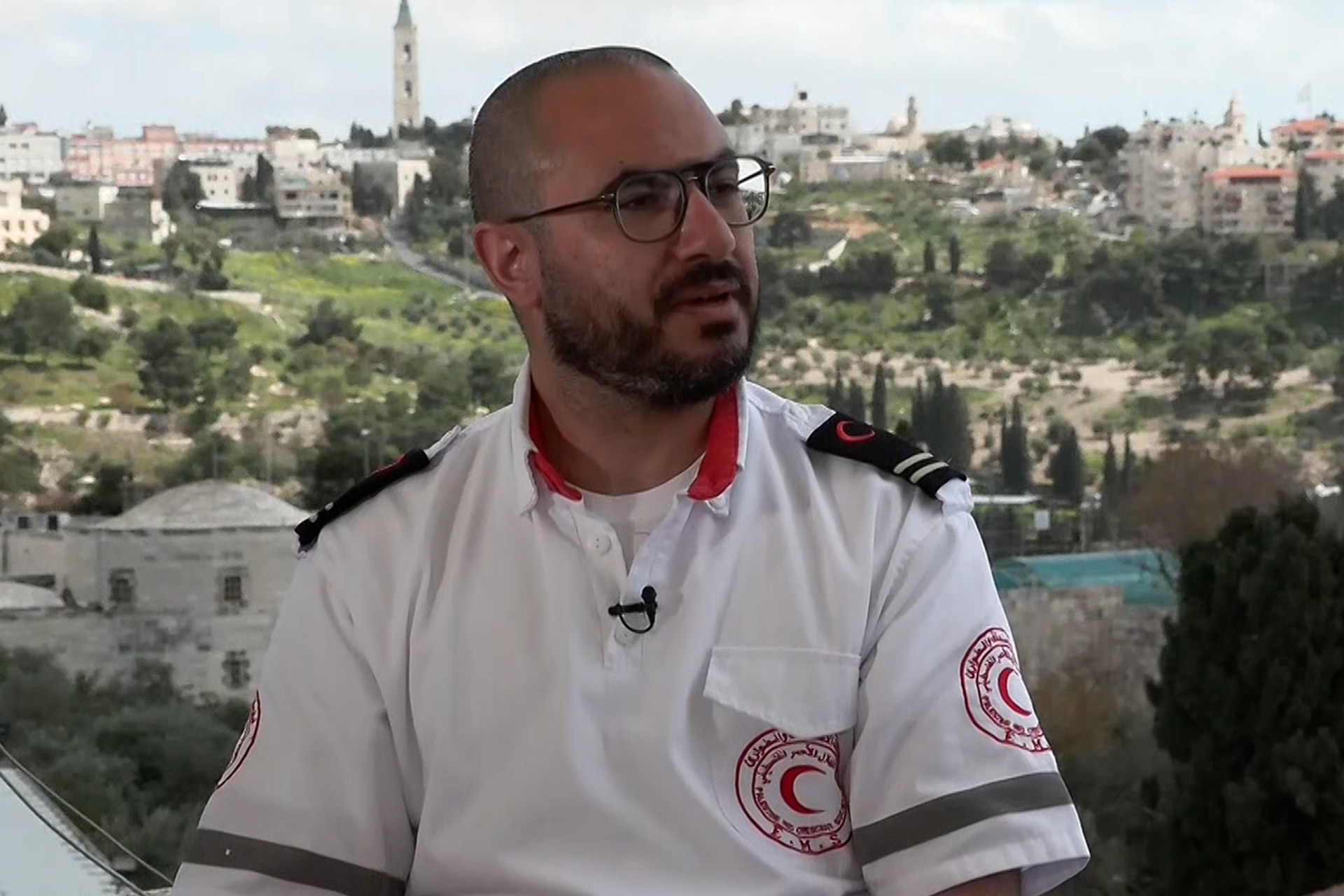play videoplay video
Video duration: 22 minutes 44 seconds 22:44
Tens of thousands of Palestinians from Jerusalem, the West Bank and the Palestinian interior performed the first Friday prayer at Al-Aqsa Mosque during the month of Ramadan, amid strict Israeli security measures inside and around the Old City.
Palestinian Red Crescent spokesman Muhammad Fityani said that for the first time since the beginning of the work of the Red Crescent Society in the city of Jerusalem, our foot crews have been prevented from entering the courtyards of Al-Aqsa Mosque, after the matter was previously limited to preventing the entry of field hospitals and medical equipment.
During his talk to “Al Jazeera Window from Jerusalem,” Vitani indicated that coordination had been made with the Islamic Endowments Department and the International Committee of the Red Cross, as in previous years, but all coordination operations had failed for the entry of our medical teams and equipment without any explanation or justification.
He stressed that the Red Crescent provides emergency and humanitarian medical services to worshipers voluntarily, through field hospitals in which there are ambulance officers, doctors and nurses, where sick cases are dealt with and the entry and exit process is organized.
He pointed out that worshipers during the month of fasting and Laylat al-Qadr need medical and therapeutic intervention, expressing his fear of stampedes or collapses that may negatively affect elderly worshipers.
Fitiani revealed that Al-Aqsa courtyards contain two clinics throughout the year, but they are not enough to meet the needs of the large number of worshipers according to emergency work protocols, stressing the necessity of supplying these two clinics with field hospitals and foot medical teams to roam among the worshipers and provide their emergency services.
He expressed his deep concern about the possibility of a major event resulting in a large number of wounded, which would put pressure on these clinics, "and they will not be able to provide medical services at that time."
The situation on the ground
Al Jazeera correspondent Hassan Masoud reported from inside Al-Aqsa Mosque that Israel allowed men over 55 years of age in the West Bank and 50 years old women to perform the first Friday prayer of Ramadan.
Masoud pointed out that the preacher of Al-Aqsa Mosque, Dr. Ikrimah Sabri, sent messages to the Arab rulers during the Friday sermon, and said that the Arab peoples are waiting for them to take measures to support the people of Gaza and support their steadfastness.
Sheikh Ikrimah Sabri considered the presence of worshipers at Al-Aqsa from various parts of Palestine a message to anyone who wants to harm him, and stressed the importance of medical teams entering Al-Aqsa, calling for increased travel during and after Ramadan, according to Al Jazeera’s correspondent.
For her part, Al Jazeera correspondent Fatima Khamaysi reviewed the conditions at Lions' Gate - one of the central gates that lead to Al-Aqsa - noting the presence of large numbers of occupation police, including 3,000 Israeli police in the vicinity of the Old City, and 23 battalions divided between the West Bank and Jerusalem.
She pointed out the dissatisfaction of some worshipers who came from far away places due to the many barriers set up by the occupation forces, as it took a long time to reach Al-Aqsa, and they crossed the barbed wire that the occupation had placed for the first time above the Lions’ Gate.
At Rachel's Dome checkpoint in Bethlehem in the West Bank, Al Jazeera correspondent Montaser Nassar said that hundreds of Palestinians were barely able to reach Al-Aqsa through the checkpoint compared to the first Friday of the month of Ramadan in previous years.
He pointed out that dozens of worshipers who were unable to reach Al-Aqsa performed Friday prayers at the Rachel’s Dome checkpoint, and among them were Palestinians who crossed dozens of checkpoints, but the occupation prevented them from completing the road to Al-Aqsa.
Source: Al Jazeera

